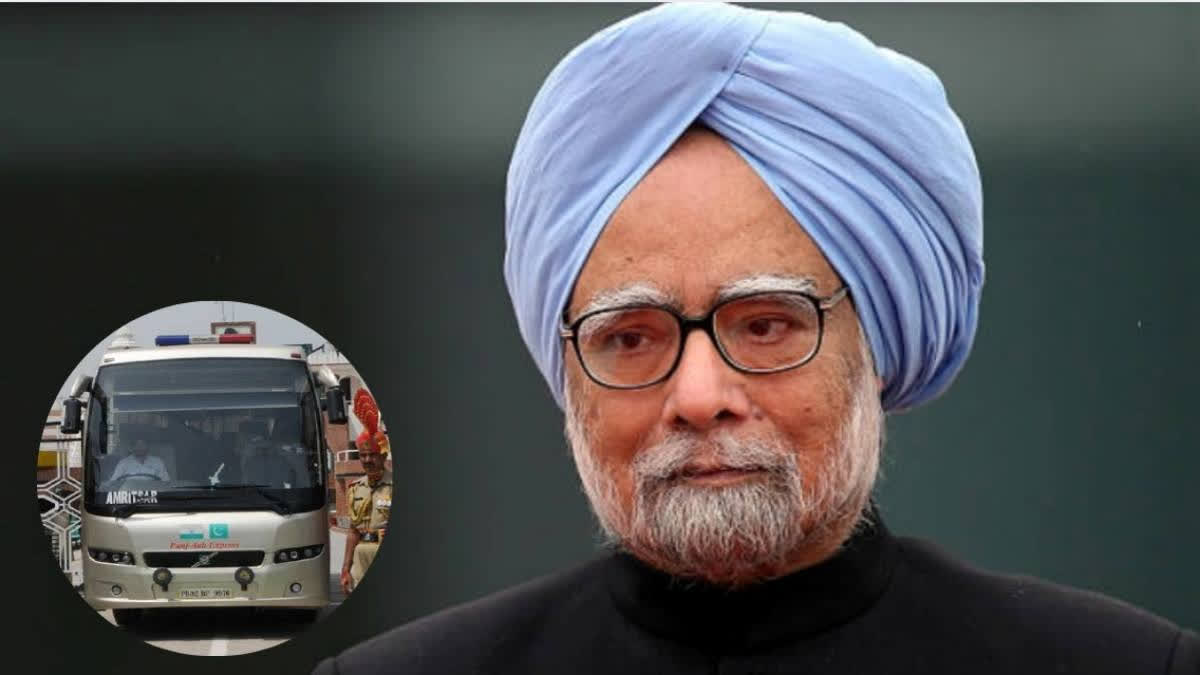Chandigarh: Dr Manmohan Singh, India's first prominent Sikh leader and former Prime Minister, passed away at the age of 92 on Thursday night at AIIMS, New Delhi. Renowned for his humility, intellect and dedication, Dr Singh left a profound impact on India's political and economic landscape. His deep connection with Punjab, the land of his birth, shaped his life and career.
Born on September 26, 1932, in Gah Pind, Punjab (now in Pakistan), Dr Singh faced the harsh realities of partition at the age of 14. "The partition of Punjab left an indelible scar on his life," shared a family acquaintance. After losing his mother early in life, he was raised by his grandmother. His family settled in Amritsar, where he completed his primary education and graduated from Hindu College in 1948 with a BA in Economics, topping the university.
In 2018, revisiting his alma mater, he remarked, "This college made me who I am today." Dr Singh's ties to Amritsar remained strong throughout his life, with his wife Gursharan Kaur also hailing from the city.
During his tenure as Prime Minister (2004-2014), Dr Singh prioritised Punjab's development. One of his most significant initiatives was the launch of the "Panj-Aab" bus service, which connected Amritsar to Nankana Sahib in Pakistan in March 2006, linking two of the most sacred shrines for Sikhs.
"Dr Singh's efforts to bring the Sikh community closer to their roots in Pakistan were truly heartfelt," remarked a senior official involved in the initiative. The bus service, which fostered cross-border Sikh pilgrimage, was halted due to strained relations between India and Pakistan, but it remains a key symbol of his commitment to Sikh heritage.
Dr Singh's association with Punjab University, Chandigarh, was another cherished chapter in his life. He served as a professor there from 1957 to 1966, describing this period as 'the happiest period of his life.' He later donated 3,500 books to the Guru Tegh Bahadur Reading Hall. The university honoured him twice with honorary doctorates, in 1938 and 2009.
His contributions to Punjab extended beyond education. He played a pivotal role in establishing the Indian Institute of Science Education and Research (IISER) Mohali, the Indian Institute of Technology (IIT) Ropar, and the Bathinda refinery, among other projects.
He also facilitated the Amritsar-Kolkata Industrial Corridor and supported the construction of Shaheed Bhagat Singh's memorial. "Punjab never faced discrimination in funds or projects during his tenure," recalled a senior Congress leader.
In his later years, Dr Singh often spoke against divisive politics. At a 2018 event at Punjab University, he urged, "Punjab must stand united against forces dividing society on religion, caste, or language." Dr Manmohan Singh's legacy as a visionary leader and his love for Punjab will continue to inspire generations.
Read More



